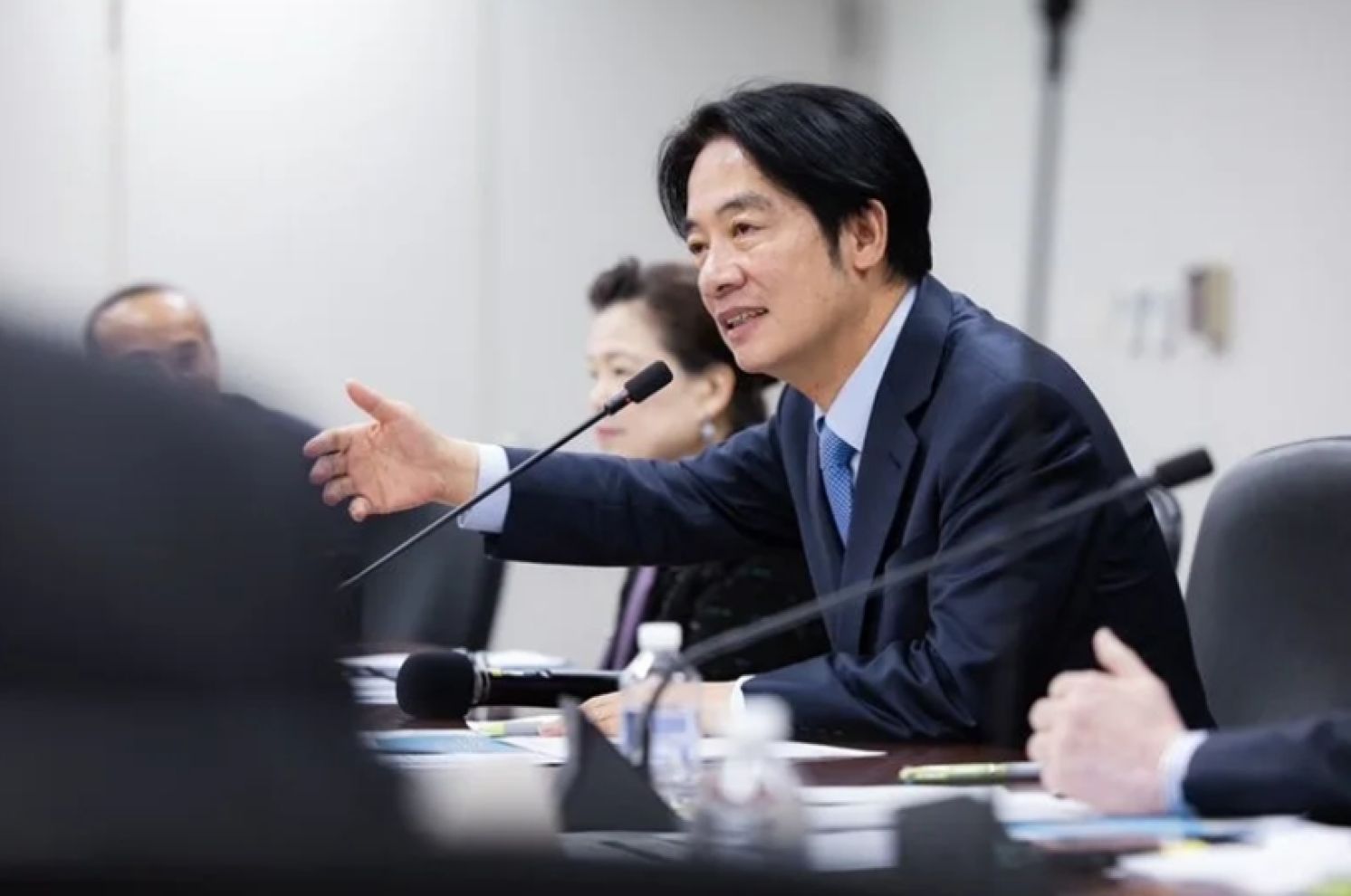
Semiconductor Industry Wants to Build its Own Nuclear Power Plants, Hopes Government Will Change Non-Nuclear Stance
Comprehensive Report by Taiwan Weekly
President-elect William Lai visited the Hsinchu Science Park on March 19 for a closed-door meeting with semiconductor industry representatives, marking the first stop of his post-election five major industries' dialogue. Chairman Frank Huang of the Powerchip Semiconductor Manufacturing Corporation (PSMC) revealed that the semiconductor industry intends to jointly develop nuclear power.
The Ministry of Economic Affairs (MOEA) announced on March 22 an increase in electricity prices starting from April. Though the business community accepts it, criticism of the Democratic Progressive Party (DPP) administration’s energy policy is on the rise, urging the government to prioritize stable power supply, review the overall power generation ratio, and reconsider nuclear energy development.
President-elect Lai will take office on May 20 and has initiated a series of visits in the 60 days before taking office. He chose the semiconductor industry as the first stop for his visits, with representatives from the Taiwan Semiconductor Manufacturing Company (TSMC), United Microelectronics Corporation (UMC), and MediaTek attending. The meeting lasted about 80 minutes, and Mr. Lai kept a low profile throughout, not giving interviews.
According to attendees' recounts, corporate representatives raised issues and offered suggestions to Lai regarding water, electricity, land, green energy, taxation, manpower, and other needs. During the meeting, Lai mentioned that he would continue President Tsai Ing-wen’s policy of maintaining peace across the Taiwan Strait and would remain open to industry suggestions, such as introducing international talent and tax exemptions. As for concerns about water and electricity shortages, he assured that there is no need to worry.
Huang stated after the meeting that they discussed with Lai whether to continue developing nuclear power. Huang expressed that the concept of a nuclear-free homeland has been discussed for several years, but what should be done is examine whether nuclear technology worldwide has progressed and become safer. After all, nuclear power generation costs are low; other industry representatives also raised whether the lower cost of nuclear power should be considered. However, Lai did not give a clear answer and still emphasized the focus on green energy.
Huang further suggested that among the semiconductor industry, there are discussions on whether to let semiconductor companies organize teams to build nuclear power plants, allowing the industry's electricity supply to be self-sufficient without conflicting with domestic electricity consumption.
After the Ministry of Economic Affairs announced the April electricity price adjustment plan, the Chinese National Federation of Industries (CNFI) representing 159 guilds, also made recommendations urging the government to: prioritize stable power supply; utilize zero-carbon nuclear power as can serve as a base load energy source and should not be excluded from the energy options; ensure stable supply of green energy at a reasonable price.
The CNFI stated that while the electricity price increase is understandable, if raising electricity prices is to offset costs and ameliorate the Taiwan Power Company’s (Taipower) losses without changing the energy structure, the problems will continue to recur.
The group indicated that despite the government's repeated assurances of sufficient power supply, with the booming production and continuous expansion of semiconductor manufacturing and Taiwanese businesses' return to the island, the annual growth rate of power demand from 2022 to 2028 averages 2.3 percent. After the decommissioning of nuclear reactors, the electricity gap may further widen, and power shortages and instability will cause huge losses to industries.
The CNFI calculated that after the decommissioning of the First and Second Nuclear Power Plant, there has been a shortage of 26 billion kilowatt-hour of electricity. Regardless if they purchase coal, natural gas, renewable energy, or other energy resources, it will increase substantial costs. The CNFI bluntly stated that Taipower is facing serious losses, and apart from international raw material prices, some factors are related to the government's "nuclear-free homeland" policy. Raising electricity prices cannot solve Taipower's loss problem.
Chairman Lin Por-fong of the Third Wednesday Club also indicated that Taipower's serious losses are due to incorrect energy policies. He said that the government has been speaking unrealistically, saying that Taiwan does not lack electricity. Lin called for the government to take a good look at how electricity production will perform this summer and hope that there is really no shortage of electricity.
Lin said that the government should build new high-efficiency nuclear power plants to reduce Taipower's losses; the government should also encourage companies to build their own power plants to cope with high electricity prices. In response to the high electricity consumption of the semiconductor and artificial intelligence (AI) industries in the future, the government should review its energy policy, retain nuclear power as a base-load power source, expedite the operation period extension processes for the Second and Third nuclear power plants, and build new high-efficiency nuclear power plants to achieve stable power supply and reasonable electricity prices.
Starting from April 1, regardless of industrial or domestic electricity consumption, electricity prices at all levels will be raised across the board, with an average increase of about 11 percent. Among them, industrial electricity prices will increase by an average of 12.7 percent, with the highest increase of 25 percent for extra-large electricity users. At the request of the General Chamber of Commerce, electricity prices for domestic users consuming less than 330 kilowatt-hour and small businesses consuming less than 700 kilowatt-hour will only increase by 3 percent, which is lower than expected.